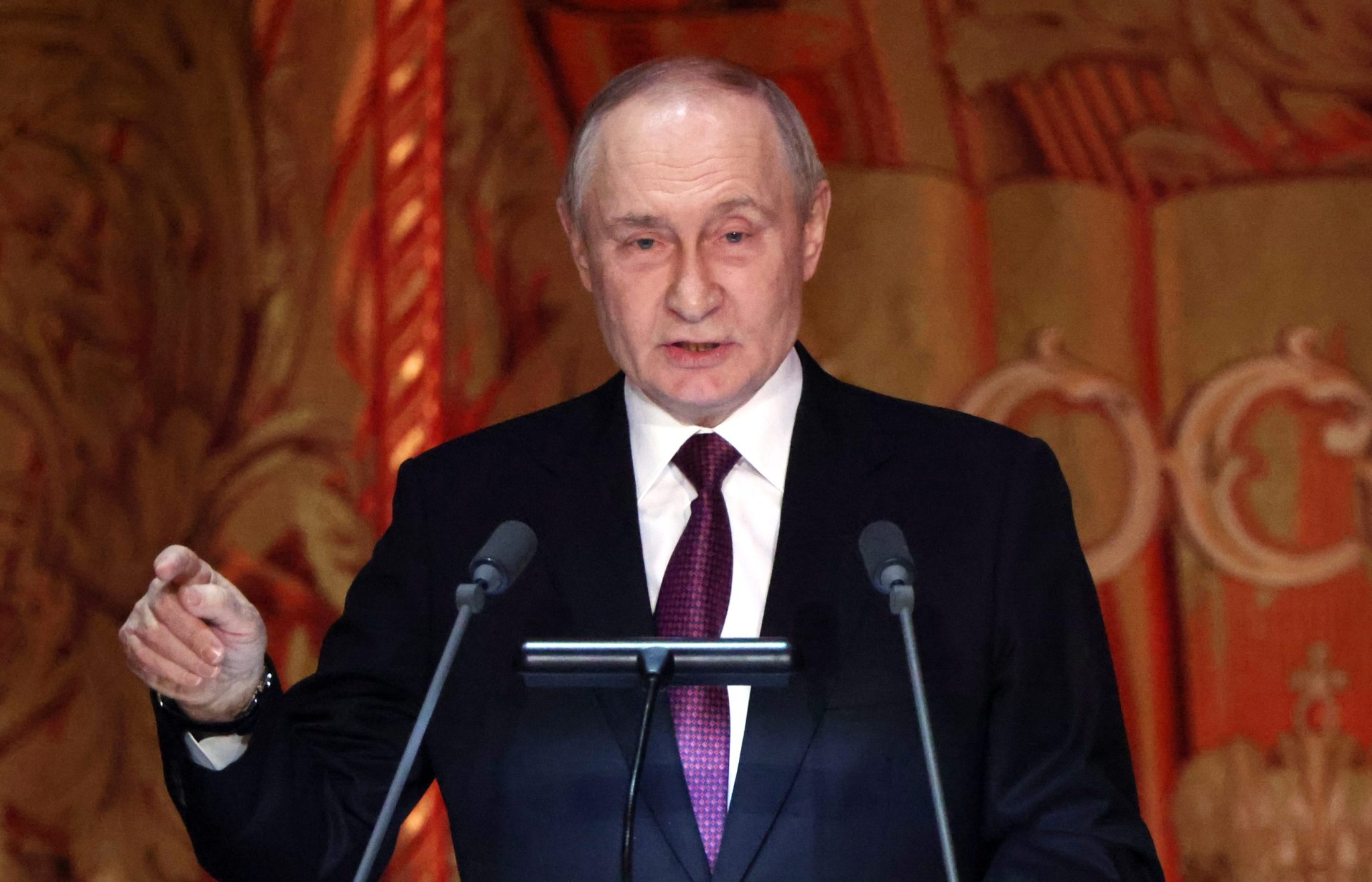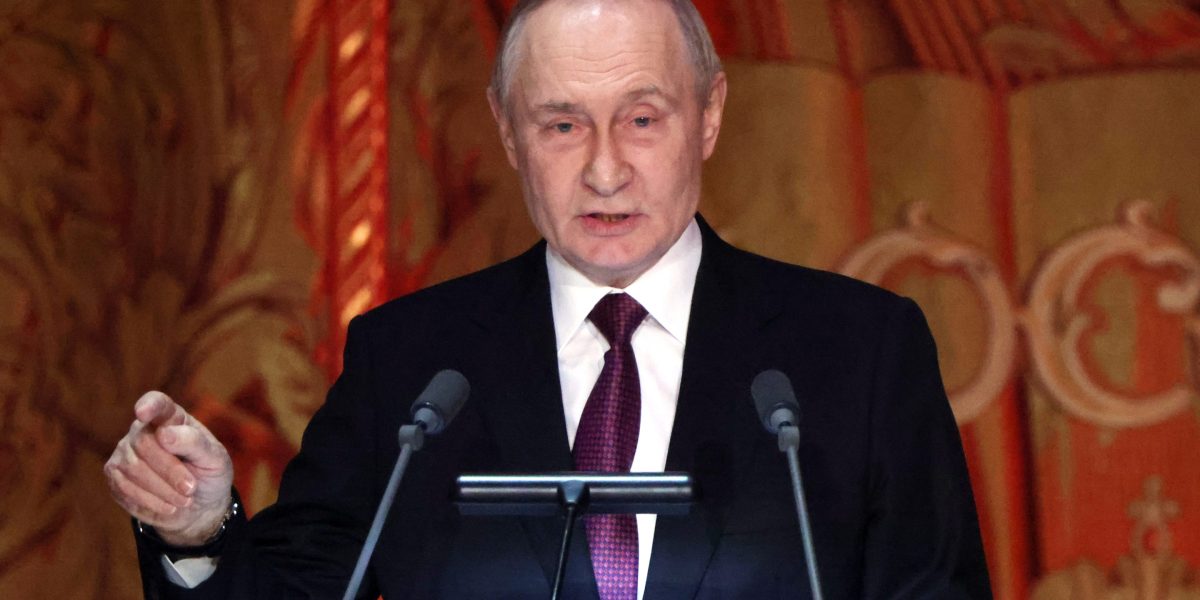
Vladimir Putin’s wartime economy, which has remained resilient in the face of Western sanctions over the invasion of Ukraine, is hitting a wall and U.S. pressure on the energy industry could lead to a recession, experts say.
Massive defense spending has propped up economic growth, kept factories humming and lowered unemployment, while Moscow relied on allies such as China for goods no longer available from the West.
“But the country has exhausted its manufacturing capacity and human resource reserves,” said Alexandra Prokopenko, a fellow at the Carnegie Russia and Eurasia Center and a former adviser to the Russian Central Bank. written in diplomatic on Monday.
“In order to produce more equipment or recruit and train more soldiers, Moscow must shift to a more comprehensive state of war, directing all available resources to military needs, as it did during World War II, or requisition civilian production lines for military purposes.”
For example, such a mobilization would require Moscow to order automobile plants dedicated to the production of military vehicles. But she added that the Russian government has not yet taken these measures because it does not want to risk shortages of consumer goods and social unrest.
At the same time, production bottlenecks, labor shortages, tighter government spending and a lack of Western technology are increasingly weighing on the economy, Prokopenko said.
GDP growth is slowing sharply, at just 1.1% so far this year, down from 4.1% in 2024 and 3.6% in 2023. Part of the reason is that all the money Moscow spent on its war in Ukraine produced few lasting benefits.
“In effect, defense spending operates like a disposable goods economy: Factories run at full capacity, workers earn wages, demand for inputs surges, but output disappears almost immediately,” she explained.
Not only are weapons and equipment destroyed on the battlefield, but the cost of dead and wounded soldiers will continue to impact the Kremlin’s budget even after the battle is over.
Such spending contrasts with government infrastructure spending that helps boost the economy’s long-term potential.
“This cycle sustained employment and industrial activity in the short term but produced no lasting assets—such as highways, power plants, or schools—or gains in productivity, resulting in an economy that grew busier but poorer with each passing year of the war,” Prokopenko wrote.
Russia recession warning
The United States on Wednesday announced sanctions against Russian energy giants Rosneft and I locked it could push the economy to the brink of collapse.
Revenues from oil and gas, the Kremlin’s main source of funding, have been falling due to low energy prices, forcing Russia to rein in its budget. The two companies account for about half of the country’s oil exports, and Rosneft alone contributes about 17% of Russia’s budget revenue.
While they could still find ways to sell crude, that would require more workarounds, which would increase costs, and some customers may be hesitant for fear of secondary sanctions.
“For Russia itself, the hit to energy revenues could push the economy into recession,” Capital Economics said in a note on Thursday.
A recession may have arrived. Data from the Russian Central Bank last month showed GDP shrank month-on-month The first and second quarters meet the definition of a so-called technical recession.
Also last month, savings bank One of the top leaders of the Russian banking industry and CEO German Gref said, The economy is in a state of “technological stagnation” In June, Economy Minister Maxim Reshetnikov warned Russia is ‘on the verge’ of recession.
To be sure, much will depend on enforcement of new U.S. sanctions, with markets weighing whether the measures are another example of President Donald Trump’s negotiating strategy of escalating to de-escalate.
In fact, Capital Economics said it would be difficult for Trump to stick to his policy of raising U.S. gasoline prices.
But analysts believe that even if Russia falls into recession, it will be enough for Putin to come to the negotiating table and end the war in Ukraine.
“So far, Russia’s economic problems have not had much impact on Putin’s war objectives, and the Kremlin will hope to resist the US’s hard-line approach in reaching a deal,” Capital Economics said. “But the economic costs of Putin’s continued war are likely to keep rising.”

